|
The media is gloating today over the "failed" Trump/Kim summit. Was the summit really a failure? If so, who is at fault? The media and pundits as usual get it wrong. It was both a success and a failure, but not for the reasons they are reporting. Tune in to today's Liberty Report for our reasoning...
By Chris Rossini
Let's say you're ready to sell your house. You love the house, have lived there for years, and have a lot of special memories. You'd love to sell it for a million bucks! Well, if it's worth a million bucks to someone, it's your job to find them, tell them the price that you're asking, maybe give them a little pitch on why they should part with their money, and throw the ball into their court. If they buy, you're both better off....It's a win-win! But now let's say that your prospective buyer does some comparisons. He looks at your neighborhood's past sales, and he sees that the homes sell for $250,000 on average. Now you have a problem on your hands. Your prospective buyer tells you to take your million dollar fantasy and get lost! There's no way he's going to give you $1,000,000 for your $250,000 house! Well you don't think that's fair at all. You have a lot of special feelings about your home, and you think you're entitled to a million bucks. This line of thinking leads you to being intrigued by some very loud and vocal politicians who say that the minimum buying price for a home SHOULD BE a million dollars! It's a RIGHT! "Fight for a million," they scream ... They even create a hashtag for it. Here's a question: What would happen if the government made such an absurd law? Would someone pay you $1,000,000 for a $250,000 house just because the government says so? Of course not! It doesn't matter what the government says. No one will buy your house for that price. In fact, the only thing that government has accomplished is it has outlawed you from selling your house at all! You can't sell your house to anyone now! Hopefully you can see where this is all going.... The minimum wage outlaws jobs.....That's it. If you have a teenager, or a person with a small skill set, or someone who is not very productive, the government outlaws these individuals from getting a job. It doesn't matter what you think your labor is worth. You can think as highly of your skills as you want. But you need to find a buyer. If your abilities and skills are worth $5/hr. to buyers, and government's minimum wage is $15/hr., no one will hire you. It's that simple. No one is going to lose money on purpose. No one is going to buy something purposefully at a loss. Whatever the minimum wage is, the businesses always adjust. They will fire people, automate, give employees more responsibilities.....Or, in the very sad case, close their business altogether. There's only one way to earn the wage that you want --- be worth it. You can't fake it, and the government can't make you more valuable by decree. If you're not worth it, get to work on yourself right away. It's you ... not anyone else. YOU.
By Jacob G. Hornberger
President Trump is currently having a second meeting with North Korea’s communist dictator Kim Jong-Un. Hoping to be awarded the Nobel Prize for Peace, Trump is hoping to enter into an agreement with the Korean Reds to finally bring a formal end to the Cold War-era Korean War. The meeting is being held in Hanoi, Vietnam, the capital of the country that the U.S. government also waged war against during the Cold War. Prior to the meeting, people were treated to a publicized spectacle in which Trump and Vietnam’s communist rulers signed a trade agreement, one that included a multimillion-dollar purchase of jets by the communists from U.S corporation Boeing. An obvious question arises: Why is the president of the United States negotiating trade agreements for U.S. businesses? Who elected him to be an agent for American business and industry? The answer is that Trump, like other Republican and Democrat statists, believes that it is the job of government officials to manage trade, both domestic and foreign. The libertarian notion that trade is no business of the government just doesn’t enter into the minds of statists. One irony is that the statist mindset is no different here in the United States than it is in socialist regimes like Vietnam. After all, notice that it was Vietnamese communist officials who were doing the signing at their end. The libertarian notion that trade is no legitimate business of government doesn’t enter into their minds either. Another irony of Trump’s visit to Vietnam is that it serves as a reminder of the lies and paranoia that undergirded the Cold War, when the U.S. national-security establishment was telling Americans that the communists were coming to get us as part of a supposed worldwide communist conspiracy that was supposedly based in Moscow. Two of the principal components of the national-security state — the Pentagon and the CIA — maintained that if the U.S. government did not intervene in Korea’s civil war and Vietnam’s civil war, other “dominoes” would begin falling to the communists, until finally the Reds would end up conquering the United States and taking over the reins of the federal government, including, of course, the IRS. That’s how the United States ended up sacrificing some more than 100,000 men in those two wars, many of whom had been conscripted, i.e., forced to “serve.” (Trump was one of the lucky or smart ones. Bone spurs supposedly in his feet enabled him to avoid being sent to Vietnam to prevent the dominoes from falling to the commies.) President Kennedy was the only president who came to the realization that the Cold War was just a crock. That was reflected by his famous Peace Speech at American University in June 1963, where he stated that the communist world and the non-communist world could peacefully coexist and maintain normal and friendly relations notwithstanding their ideological differences. The national-security establishment was livid over what they considered was Kennedy’s naiveté and grave incompetence. In their minds, peaceful coexistence between the United States and the Soviet Union and the rest of the communist world was impossible. As far as they were concerned, this was going to be a war to the finish, with a winner and a loser. There could be no compromise with the Reds. And yet, Trump’s trip to Vietnam confirms that Kennedy was right and that the Pentagon and the CIA were wrong. North Vietnam ended up defeating the United States in the Vietnam War and ended up uniting the country under communist rule. To this day, Vietnam continues to be ruled by a communist regime, and a brutal one at that. But the dominoes never fell. While the United States has been ruled by a succession of statist politicians, both Democrat and Republican, the U.S. was never taken over by the Reds. And today, U.S. officials, including the President and those in the Pentagon and the CIA, play nice with the Vietnamese communists. Which brings up Cuba, another communist regime. During the Cold War, the Pentagon and the CIA steadfastly maintained that Cuba was a communist dagger pointed at the neck of the United States. Their mindset was that if the communists were permitted to remain in power in Cuba, the United States could not survive. That’s why the U.S. government ended up imposing a brutal embargo against Cuba. It’s also why the CIA initiated a U.S.-sponsored invasion of Cuba, exhorted Kennedy to bomb and attack the island under false pretenses (i.e., Operation Northwoods), engaged in repeated assassination (i.e., murder) attempts, in partnership with the Mafia, against Cuban leader Fidel Castro, and initiated acts of sabotage and terrorism inside Cuba. It is worth noting that Cuba never attacked the United States or even threatened to do so. The U.S. government has always been the aggressor in its forever war against Cuba. Kennedy came to the realization that the national-security establishment’s anti-Cuba obsession was as much a crock as its anti-Russia obsession. In fact, at the very time he was assassinated, Kennedy had a personal emissary meeting with Fidel Castro with the intent of normalizing relations with Cuba. Needless to say, Kennedy’s assassination brought that aim to an immediate end. A question naturally arises:Why does the U.S. government still maintain its Cold War embargo against the Cuban people? The Cold War racket supposedly ended in 1989. Why is the U.S. national-security establishment still as obsessed with Cuba as it is with Russia? After all, Cuba didn’t kill 58,000 American soldiers, like the Vietnamese communist regime did. If Trump, the Pentagon, and the CIA can make nice with Vietnam’s communist regime, why is it necessary to continue having an antagonistic and destructive relationship with Cuba? The answer partially lies in the mindsets of such Cold War dead-enders as John Bolton and Eliott Abrams, who Trump has brought into his administration (or that the Pentagon and the CIA assigned to the White House). These two guys are obviously still living in a Cold War time warp, one that has clearly warped their thinking, to the point that they’ve got Trump tightening the screws on Venezuela and Cuba for the purpose of regime change while he makes nice with the Vietnamese Reds and embraces North Korea’s communist dictator. It’s time for the American people to put a stop to all this statist nonsense. No more government-managed trade agreements and no more sanctions, embargoes, interventions, and regime-change operations. Free Americans to travel wherever they want and trade with whomever they want. Stop the interventionism, dismantle the national-security state, and restore a limited-government republic to our land. It’s time for America to lead the way toward liberty, morality, and prosperity and permanently consign the Cold War Dead-enders to the dust bin of history. This article was originally published at The Future of Freedom Foundation.
While all eyes are on the Trump/Kim talks in Hanoi, the US Administration is continuing peace talks with Afghanistan's Taliban in Qatar. Will the US withdraw all troops from Afghanistan in exchange for Taliban promises to keep fighting ISIS and al-Qaeda?
By Michael S. Rozeff
Bernie Sanders wants a lot: “Our campaign is about transforming our country and creating a government based on the principles of economic, social, racial and environmental justice." As a rule, attempts by lawmakers to engineer economies, societies, racial disparities and environments fail to achieve their advertised goals of benefiting the public. As a rule, laws that are supposed to transform these systems increase rather than decrease injustice. If we make our own non-aggressive decisions, there will be more justice than when lawmakers make decisions for us, using aggression as they do. There is a utilitarian side to lawmakers’ power. Government power is the tool of interest groups seeking private advantages and privileges. Many officeholders are bought off. They do not act in the interests of people at large. There is a complexity side to lawmakers’ power. Among most lawmakers there is a large amount of ignorance. There are honest and well-meaning people in power who really do believe that their laws will accomplish the good ends they aim for. However, systems like economies, societies, environments and cultures are so complex and dynamic that they can’t as a rule be controlled by passing laws, even when lawmakers aim to solve some problem. There are too many intricate, convoluted, historical, psychological, and other ever-changing factors involved for lawmakers to grasp or be able to control. Bernie Sanders may be one of the well-meaning, but he cannot get anything of what he wants by many of the means that he proposes: $15 minimum wage, raising tax rates, higher taxes, increased infrastructure spending, trade protectionism, public ownership of the means of production, expanding the Federal Reserve Board to make it more democratic, preventing mergers, and transforming energy sources away from fossil fuels. Poverty is one of these intractable outcomes of complex economic, cultural, racial, social and other unmentioned systems. It has so many facets that no one can fathom them all by any amount of study. No one can fashion laws to eliminate it, if that is made into a goal by lawmakers. Their attempts to reduce or eliminate poverty as a rule will fail to do so. They’ll probably make it worse. Attempts of lawmakers to solve some other problem are likely to impact poverty. The libertarian approach to complex systems is to allow freedom to operate as much as possible as long as the activities are just in disallowing aggression. This idea would guide lawmakers to reduce most of the laws on the books, instead of constantly devising new ones on top of the old ones. Freedom entails people making the best decisions they can based upon their own circumstances. Freedom entails being rewarded if one’s decisions work out for the better; and since they do not involve aggression against others, this is a desirable outcome. Conversely, if one makes bad decisions, one loses; but one learns. Freedom involves continual feedback about one’s decisions, good and bad. That helps it to work. Lawmakers don’t know individual circumstances and they don’t get such feedback. They are out of touch with the changing conditions that each of us personally faces. They are out of touch with our personal evaluations of what to do next that will provide a benefit. Lawmakers cannot cope with such complexity. Marco Rubio wants an industrial policy. Donald Trump wants U.S. steel plants. Bernie Sanders wants government to provide social justice. Kamala Harris wants reparations. Alexandria Ocasio-Cortez wants a renewable energy economy. They may really want to feather the nests of some interest groups, but if they really want what they say, as a rule they’ll still only make matters worse by applying their laws to the complex reality that they are ignoring. This article was originally published at LewRockwell.com
By Ron Paul
After Congress rejected President Trump’s request for 5.7 billion dollars for the border wall, the president declared a national emergency at the southern border. Present Trump claims this “emergency” gives him the authority to divert funds appropriated for other purposes to building the border wall. President Trump’s emergency declaration is not just an end run around Congress. It is an end run around the Constitution. Article One of the Constitution gives Congress sole authority to allocate federal funds. While President Trump’s order may be a particularly blatant abuse of power, it is hardly unprecedented. Most modern presidents have routinely used so-called national emergencies to expand their power, often at the expense of liberty. For example, Present Franklin Delano Roosevelt used “emergency powers” to justify internment of Japanese-Americans during World War Two. President Trump, like other recent presidents, is relying on the 1976 National Emergencies Act for legal justification for his emergency declaration. This act gives the president broad powers to declare national emergencies for almost any reason. All the president need do is inform Congress he has declared an emergency. Once the emergency is declared, the president simply needs to renew the declaration once a year to maintain a state of emergency. Since this act passed, 59 emergency declarations have been issued, with 31 of those still in effect. Another statute giving the president broad “emergency” powers is the Defense Production Act. Under this law, the president can force private businesses to produce goods for the military. The law also enables the president to impose wage and price controls and even make loans to private businesses. All a president need do to invoke these vast powers is submit “findings” to Congress that “national security” requires the president seize near-dictatorial control of certain industries or even the entire economy. According to the Congressional Research Service, some presidents have invoked the Defense Production Act without making the required findings to Congress, and the act has been used to justly federal interference in areas having little or nothing to do with national defense. Section 606(c) of the Communications Act gives the president “emergency” power to seize control of every television network, radio station, smartphone, laptop, and other electronic devices. Emergency powers are not the only means by which presidents violate the Constitution. The 2001 authorization for use of military force (AUMF), which only authorizes the president to use force against those responsible for the September 11 attacks, has been used to justify military interventions that have no relationship to those attacks. The 2001 AUMF has been used to justify mass surveillance, indefinite detention, and even “kill lists.” Fortunately, Representative John Garamendi has introduced the Walter B. Jones Restoring Power to Congress Act that would pay tribute to a true champion of peace by repealing the 2001 AUMF. Many neoconservatives and progressives who defended prior presidents’ abuses of power are critical of President Trump’s emergency declaration. These “never-Trumpers” will no doubt resume their love affair with the imperial presidency when the Oval Office is again occupied by someone who shares their agenda. This week, the House of Representatives will vote on a resolution terminating President Trump’s declaration of a national emergency. Hopefully, this precedent will be used against all future presidents who use spurious claims of national emergencies to expand their powers and shrink our liberties.
The weekend stand-off between the US aid trucks on the Colombian side of the border and the Venezuelan government did not go quite as planned by the US. The aid did not get through, the military did not defect, and US-selected "president" Guaido was nowhere to be seen. But the aid trucks did catch fire in Colombia and Washington is blaming Maduro. Do they have any evidence? Or is this a false flag?
By Robert Wenzel
Delinquent U.S. student loans reached a record $166 billion in the fourth quarter, according to a new report from the Federal Reserve Bank of New York. But here is the kicker, the NY Fed says, "delinquency rates for student loans are likely to understate effective delinquency rates” by about half.
Bloomberg does the numbers here to put things in perspective:
Factoring for understatement would imply that about $333 billion in student debt has not been serviced in at least three months. Putting this into perspective, $441 billion had been disbursed under Treasury’s entire Troubled Asset Relief Program to provide financial stability during the recession.
In other words, this is a very serious problem. But it is not at all like the housing crisis. During the housing crisis, many people were evicted from their homes or had to make mortgage payments on houses that were way underwater relative to mortgage balances.
Nothing like that is occurring now, at most, some students who are not making payments are walking around with bad credit ratings. That is not fun but it is not the same thing as being thrown out of a house. But, the student loan delinquency problem is a major problem for the government. From College Scholarships: Up until 2010, guaranteed loans were available through private lending institutions under the Federal Family Education Loan Program (FFELP). These loans were funded by the Federal government, and administered by approved private lending organizations. In effect, these loans were underwritten and guaranteed by the Federal government, ensuring that the private lender would assume no risk should the borrower ultimately default.
So for most college loans made before 2010 where the students are delinquent, the government is on the hook to the banksters who hold the loans. And for loans made from 2010 to date, where payments aren't being made, the government is stuck with some very bad paper.
No surprise here. A government program based on the absurd idea that everyone has a "right" to a college has gone bust. College makes sense for those attending to learn a skill such as accounting or engineering. Or those who attend Ivy League colleges, or those on track for a scientific or academic career but that is about all. It is interesting to note that the highest percentage of delinquencies appear to be in areas where there is lower demand for college skills such as software engineering etc.
Nearly 26% of student loan borrowers in Jackson, Miss., have been delinquent on their loan repayment, taking the top spot on the list, according to Student Loan Hero.
Two metro areas in Florida — Lakeland-Winter Haven and Daytona Beach — follow with the next-highest delinquency rates of 23.4% and 23.3%, respectively. On the other end of the spectrum, San Jose (the epicenter of Silicon Valley) has the second lowest delinquency rate at 14%. Provo, Utah, Mormon country, has the lowest delinquency rate at 13%. It is typical socialist shallow thinking to hold the view that funding college education for everyone is somehow going to be a net positive for society. Especially when half the courses are taught by capitalist haters, who teach the kids that demands in the form of fruitcake "rights" are the way to gain rather than by producing something. This article was originally published at EconomicPolicyJournal.com
In a free society, every individual has a right to their life, liberty and property. No one may initiate force (i.e., invade) the life, liberty or property of anyone else. This is the ideal that must perpetually be in our sights, despite the loud voices who relentlessly push for the opposite.
Yesterday's Supreme Court ruling on civil asset forfeiture - that states are bound by the Eighth Amendment - may be a step in the right direction, but it's only a baby step. Police are still free to steal from individuals not even accused of a crime, let alone convicted of a crime. They are just now told to not steal too much.
|
Archives
July 2024
|

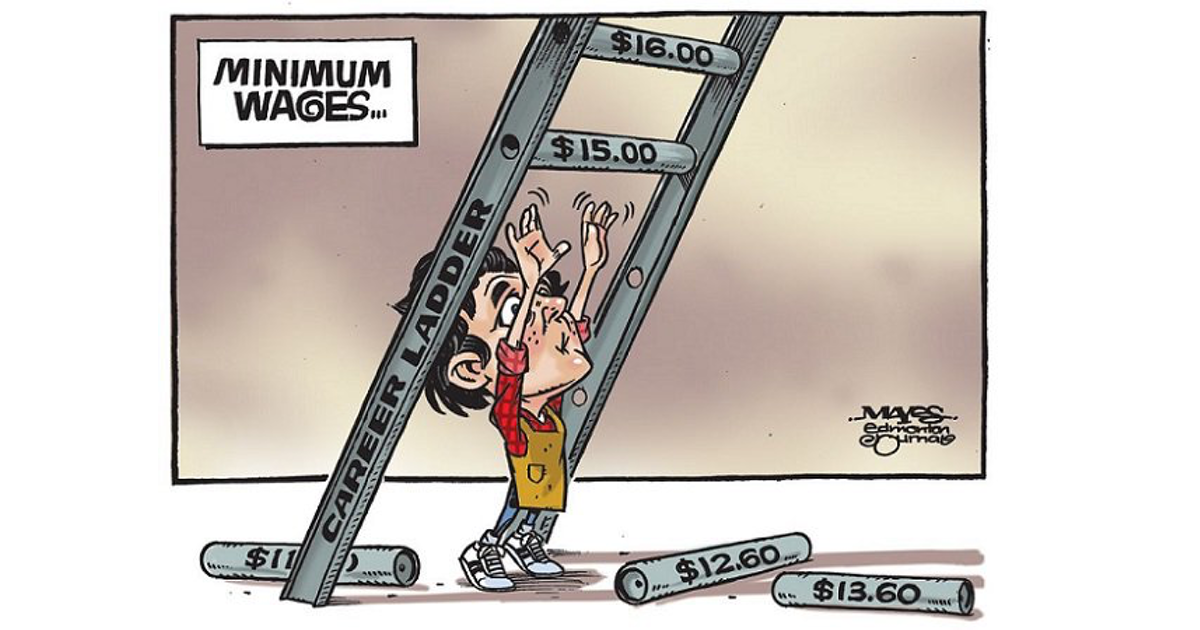
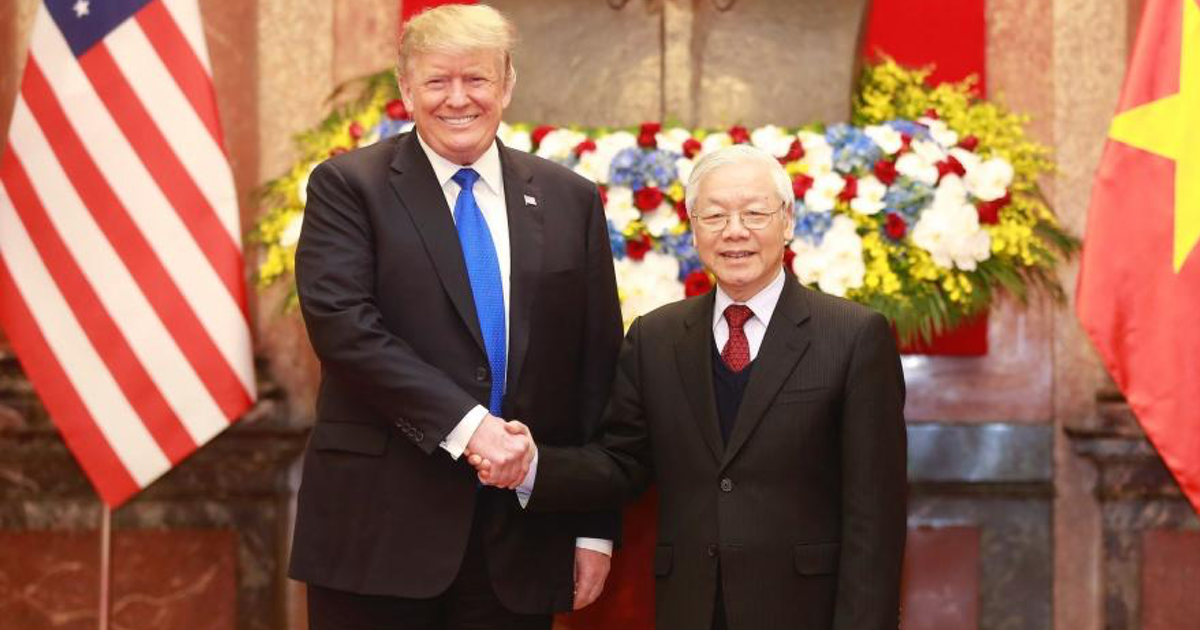
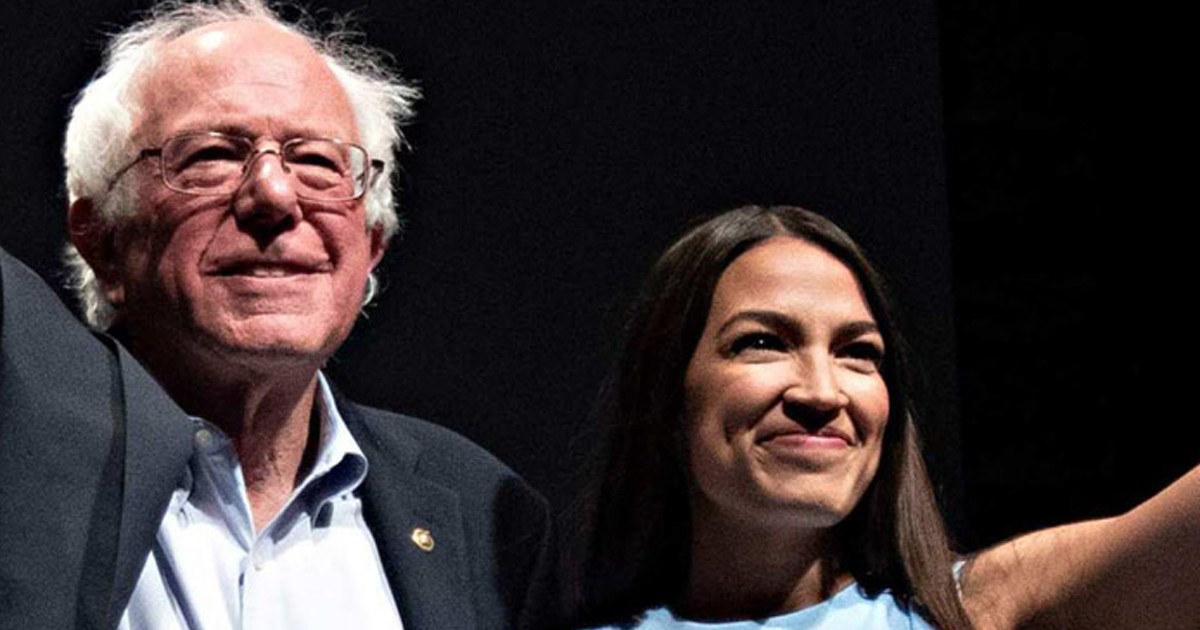
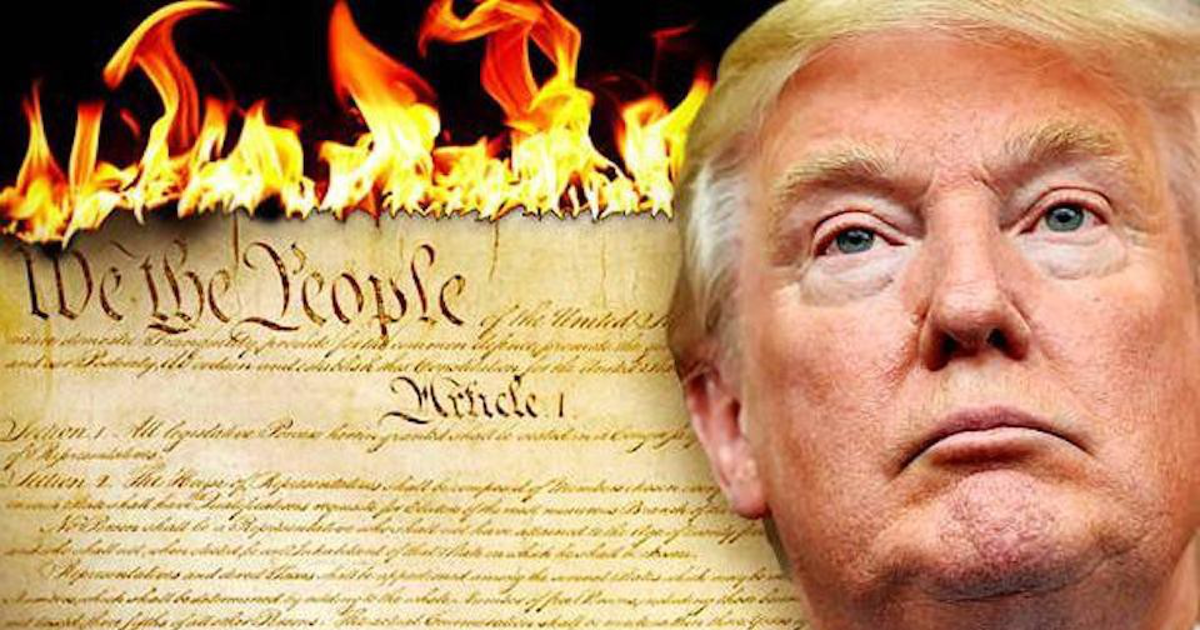
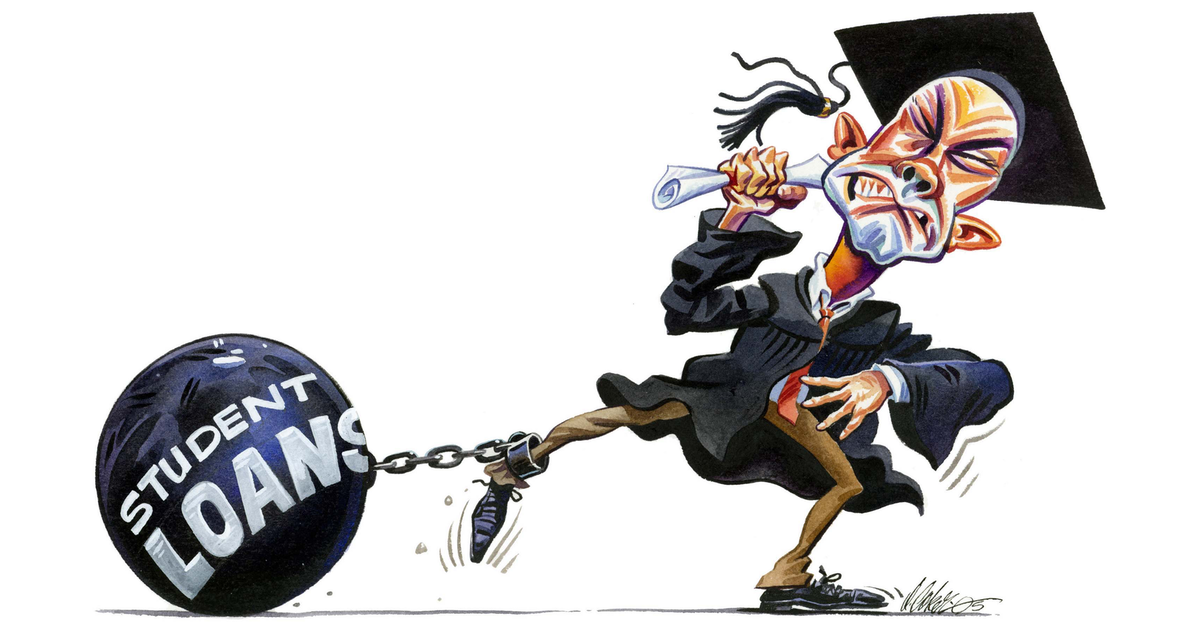
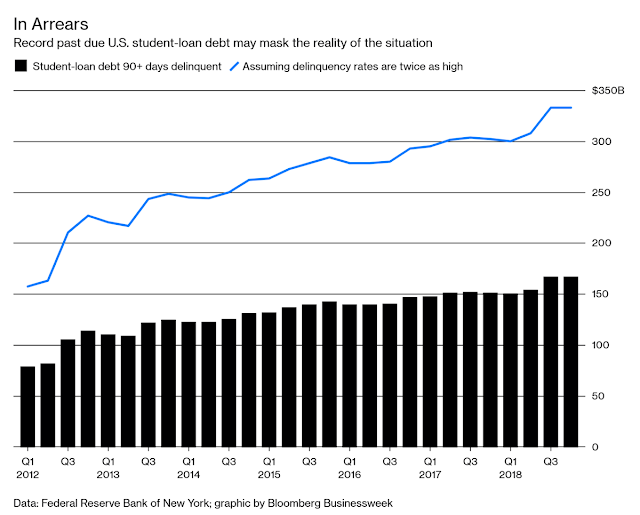
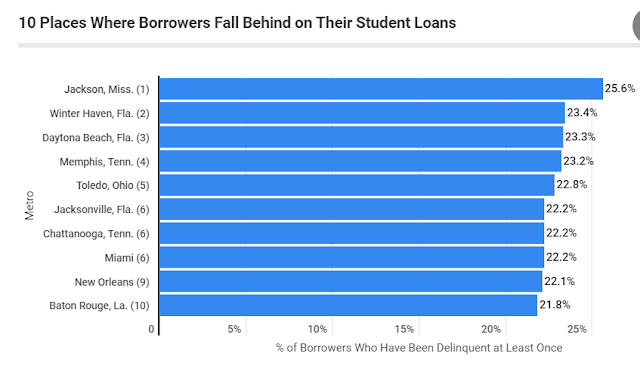
 RSS Feed
RSS Feed



